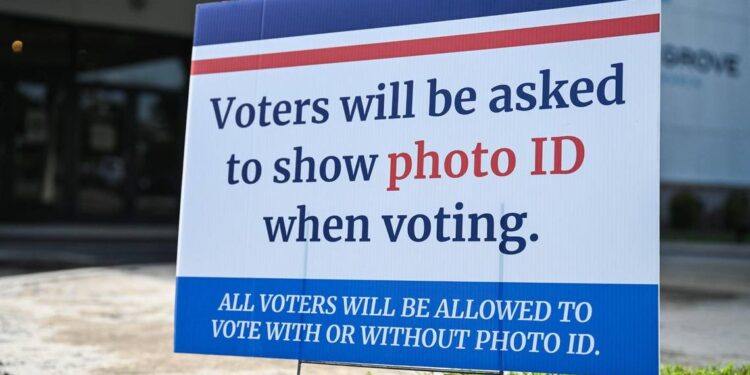Nov 07, 2024 Story by: Editor
A long-standing lawsuit challenging the legitimacy of the North Carolina legislature and its decision to include voter ID requirements in the state constitution is set to return to court after being inactive since 2022.
A three-judge panel in Wake County Superior Court will hear the request from Republican leaders, who are named as defendants, to dismiss the case.
The lawsuit, initially filed in 2018 by the North Carolina NAACP, argues that Republican lawmakers lacked the authority to amend the constitution because they were elected from illegally racially gerrymandered districts.
In addition to challenging the amendment mandating voter ID, the lawsuit also contests another amendment that reduced the state’s income tax rate cap.
In North Carolina, constitutional amendments must be approved by voters, but they can only be proposed by the legislature. Both challenged amendments received majority support in the 2018 elections, yet the NAACP contends that the General Assembly was not legitimate in placing them on the ballot due to gerrymandering.
In 2019, Wake County Superior Court Judge Bryan Collins sided with the NAACP, ruling that “an illegally constituted General Assembly does not represent the people of North Carolina and is therefore not empowered to pass legislation that would amend the state’s constitution.” This ruling was later upheld by the North Carolina Supreme Court in 2022, when the court was still under a Democratic majority. However, the court directed that the case be sent back for further trial proceedings.
Since then, key political and legal changes have occurred that could impact the case’s outcome. Republicans gained a majority on the state Supreme Court in 2022 and reversed previous rulings on several contentious issues, including a decision that had blocked the state’s voter ID law.
As a result, voter ID has been in effect for two elections and will continue to be required for voters in the 2024 general election. In legal filings, Republican leaders argue that the ID law is already in place and that invalidating it could “lead to its own chaos and confusion.”
The NAACP, however, counters in its filings that the 2022 Supreme Court ruling made it clear that the future of the two amendments remained uncertain. “It left it to this court to determine if the amendment should be included or not,” NAACP lawyers wrote. “There is nothing that has happened since that ruling that would cause any chaos or confusion today.”
Even if the lower court rules in favor of the NAACP, the case could be appealed to the state Supreme Court, where the new Republican majority may be less inclined to support the NAACP’s position. Source: MSN

















